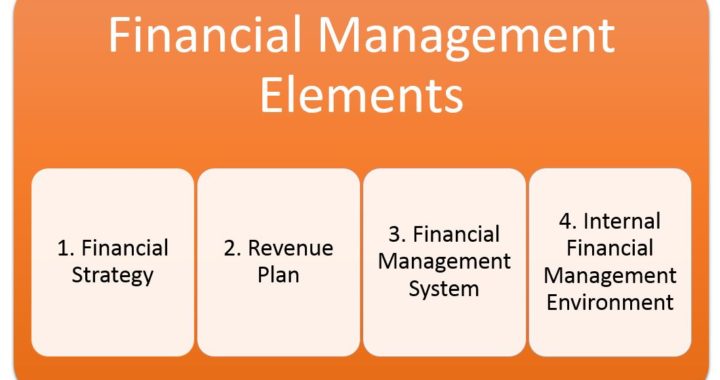Proper financial management is arguably the most important skill any business or individual must master in order to be successful in the short term and long term. Anyone responsible for managing their business resources, from freelancers and full time traders to multinational corporations and small businesses, will not last long unless they learn to strategically control optimize their business finances. For individuals looking to create long-term wealth, the same is also true.
What is financial management?
Financial management is more or less what it sounds like: managing your finances. This involves controlling every stage that your financial resources  pass through. Financial management therefore includes planning, raising, organizing, controlling, administering and monitoring capital and other financial resources in order to meet the objectives of the business, organization or individual, in the case of personal financial management.
pass through. Financial management therefore includes planning, raising, organizing, controlling, administering and monitoring capital and other financial resources in order to meet the objectives of the business, organization or individual, in the case of personal financial management.
With good financial management procedures in place, your business will be able to use its financial resources effectively and efficiently towards short-term and long-term goals, ensure long-term financial stability and sustainability, and gain an edge over your competitors in the same niche.
Basic elements of financial management
Proper financial management can be loosely broken down into these four basic elements:
- Financial strategy
- Revenue plan
- Financial management system
- Internal financial management environment
Developing a good financial strategy
Your financial strategy is basically a highly specific plan to get you and/or your business from where you are now to where you want to be. A good financial strategy must realistically examine your current financial situation and any relevant factors influencing that situation; otherwise, you will have no way of knowing what needs to be done to reach your objectives.
Speaking of objectives, you also must have clearly defined goals for the short term and the long term. Without a specific and well-articulated idea of where you want your business to be, and over what time-frame, you won’t be able to create a successful plan to get you there.
“How to get you there” can be fleshed out in the second element, your revenue plan. But it also must involve considerations like the potential risks your business will face, and how you will deal with those risks, as well as how to balance your need to continually spend and reinvest in your business with the very real need to have a savings plan.
Creating a solid revenue plan
 Hopefully you already have at least a vague idea of how you plan to generate income. This will be vastly different for everyone depending on the field of their particular business or organization. The point is, without income, your business can’t grow, and you will have an easier time bringing in that revenue if you have a plan of action ahead of time.
Hopefully you already have at least a vague idea of how you plan to generate income. This will be vastly different for everyone depending on the field of their particular business or organization. The point is, without income, your business can’t grow, and you will have an easier time bringing in that revenue if you have a plan of action ahead of time.
Basics of financial management systems
Like your revenue plan, your financial management system will depend on your particular business or organization, but there are a few principles that are universally important for a successful financial management system, including consistency, accountability, integrity, and good record keeping.
A good financial management system will help take some of the guesswork out of decisions that involve how to best use your (often limited) resources. It involves tangible things like creating reasonable budgets and deciding where to allocate your capital, and also more abstract concepts like reflecting on whether the system makes it easier to make these decisions effectively, keeping your business’ financial goals in mind and putting them in the context of your financial management system.
Create an effective internal environment for financial management
Lastly you need to determine the various roles and responsibilities that are needed to effectively and consistently implement your financial management system, who will be responsible for each of these tasks, and how they will work cohesively towards the business’ common goals.
